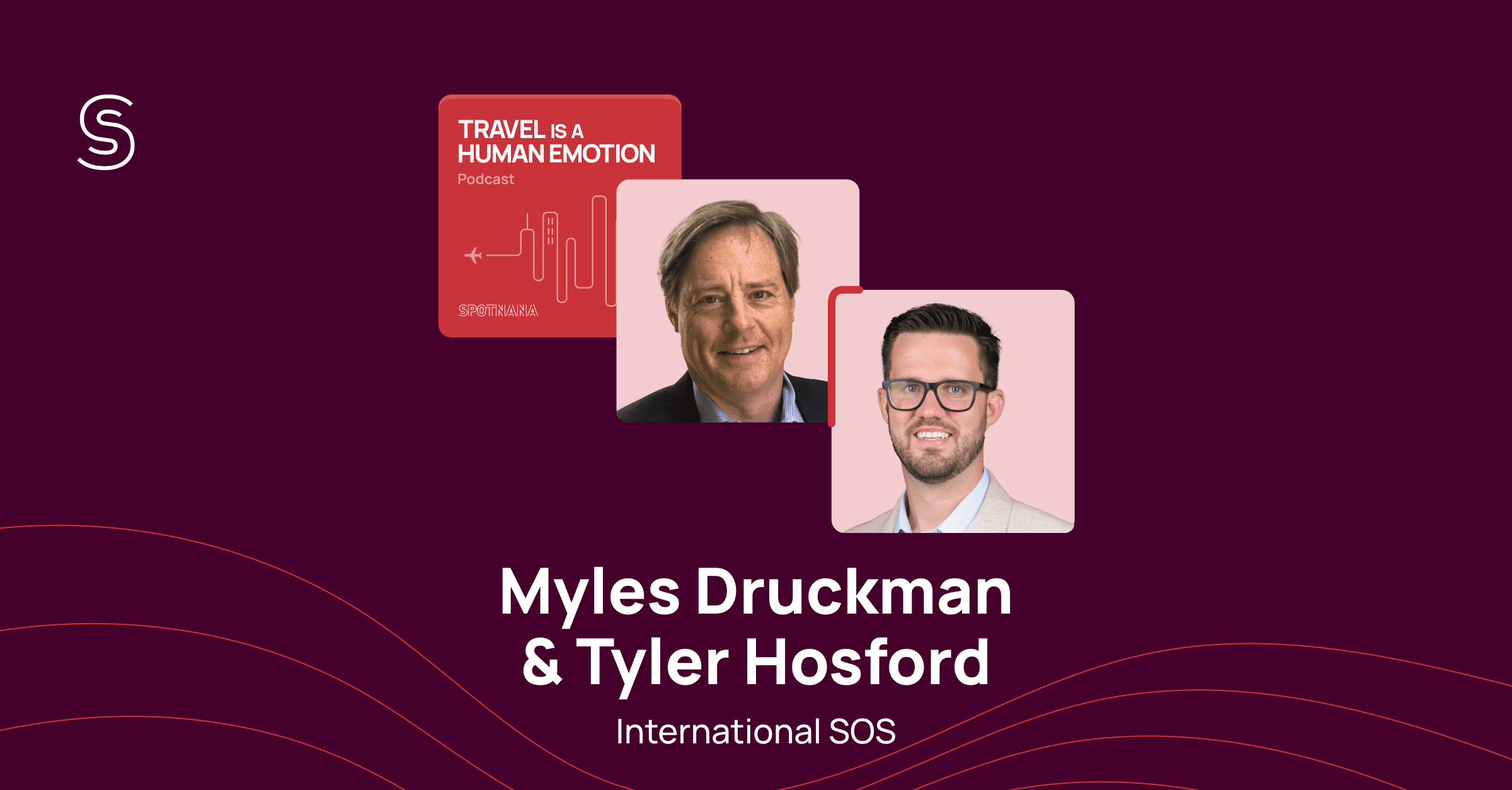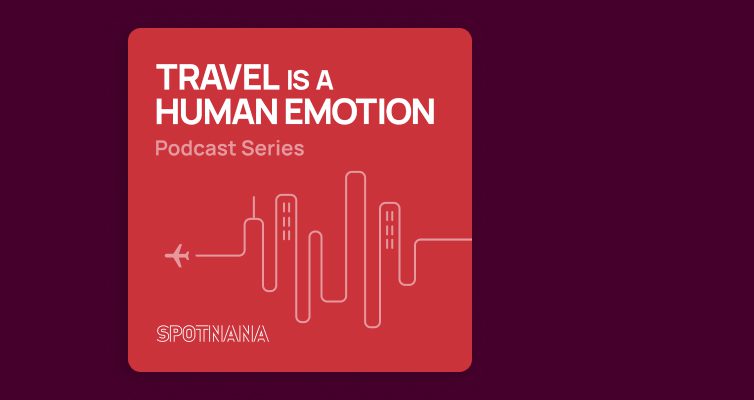Podcast: International SOS on risk management trends

Duty of care is an important issue in corporate travel, as companies seek to ensure the safety of their travelers in a complex and sometimes chaotic world.
For the ninth episode of The Travel Is a Human Emotion Podcast, Spotnana VP of Marketing Justin Schuster spoke with Myles Druckman, Global Medical Director, Senior Vice President, International SOS, and Tyler Hosford, Security Director at International SOS, about the evolution of risk management in 2024.
Druckman and Hosford discussed the evolving landscape of duty of care in corporate travel, the importance of risk management to global corporations, and the importance of a personalized approach to traveler risk.
Geopolitical tensions
Research from International SOS has found that 74% of risk managers believed that geopolitical tensions would significantly impact their organizations in 2024.
According to Hosford, the perception of instability takes a toll on the psyche of travelers even if their trip happens seamlessly.
“Security is really about how you empower people to be the best traveling version of themselves,” said Hosford. “Look, travel is a great thing, but there are risks. How do you think about what’s going on in a location that you’re going to, what are some of those incidents that you might need to be aware of?”
Preparing travelers is vital for corporations to effectively manage risk. If a traveler is getting information online during an adverse event, that information may be incorrect and lead travelers to make risky decisions.
“We’re seeing a lot of companies refocus on the processes they have in place that might be causing undue stress,” said Druckman. “Can we make [trips] more seamless for you… by educating you before you go, so you’re not surfing around the web, maybe getting the wrong information and getting scared about a situation that you don’t need to be scared about?”
Extreme weather
Climate change has led to an increase in extreme weather events affecting business travel globally. From hurricanes and floods to wildfires and heat waves, these incidents can severely disrupt travel plans and put employees at risk.
Beyond disruptions, high temperatures and poor air quality are also contributing to health concerns for travelers. If a company sends employees out to job sites, for instance, it should be aware of how it prepares its workforce to handle challenges based on the environment.
“How do you make sure that you’re preparing your people?” asked Hosford. “… People are always [priority] number one, two, and three, but just behind that, the business does still have to continue. How are you mitigating those risks? People are thinking about their business continuity plans.”
Evolution of risk management technology
Modern risk management platforms integrate real-time data feeds, AI-powered analytics, and mobile alerts to keep travelers informed of emerging threats.
Data integrity is important, as risk management providers and corporations both need to know the current status and location of a traveler at all times. Spotnana, for instance, has built an integration with International SOS that seamlessly provides a high-quality data feed with real-time information on travelers.
Looking forward, there is great promise for more robust traveler profiles, real-time tracking, and AI-based enhancements to further support corporate traveler programs before the traveler is on the road.
“The future traveler is going to [have] a comprehensive kind of travel profile which is more of the static baseline of your situation,” said Druckman. “…. Having that advanced knowledge of that personal profile will help us make a better plan for that individual’s trip. That customization is the future of where International SOS wants to go when it comes to personalizing [service to] your needs so that you can get the best support when you’re traveling.”
AI, in particular, has the capability to drive down the cost of more personalized service. Combining the insight and experience of human risk managers with the power of AI will help to provide a wider level of risk preparedness to travelers.
“The human touch is still going to be very important, particularly in these kinds of urgent emergent situations, but how do we get information digested and how do we look at future threats?” asked Druckman. “How do we automate processes so they’re more efficient and hopefully more cost effective too? Things that used to take a lot of time and effort and cost, those things are going to come down [in cost].”
To learn more, check out The Travel Is a Human Emotion podcast.







